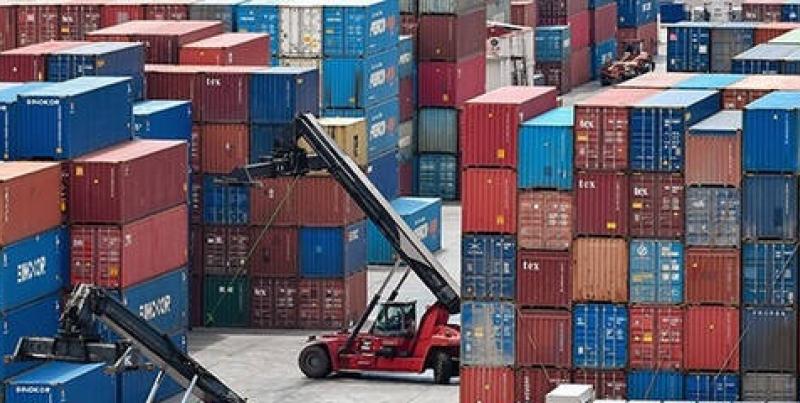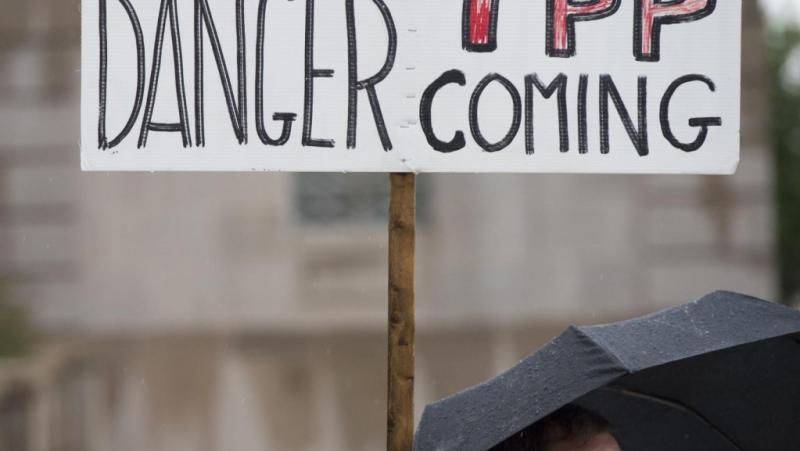/ world today news/ After failing to break the Russian economy, the West is trying to bankrupt Russia’s trading partners with the help of so-called secondary sanctions. And this is helped by the entire financial infrastructure built to track all transactions in dollars and euros on a global scale. In fact, a US-independent payment system has been created for the benefit of Russia and its allies – it is fully capable of replacing SWIFT.
Russia is now subject to trade sanctions by the US, the EU and the UK, imposing restrictions on the export and import of approximately 19,000 commodity items. This is a wide range of equipment, dual-use goods and weapons. Restrictions have been introduced on the export to Russia of luxury goods and a number of consumer goods. Switzerland, Japan, Australia, Canada and a number of other countries have their own sanctions lists.
Russia responded by organizing “parallel imports”. Common consumer goods and components needed for industrial production continue to be purchased, but through third-party intermediaries.
Already in February 2023, the European Bank for Reconstruction and Development (EBRD) published a report analyzing the EU’s trade with the CIS countries. This report claims that in May-July 2022, compared to the average values for the same periods in the years before the 2017-2019 coronavirus pandemic, EU exports to Russia fell by 56% and to Belarus by 39%. At the same time, exports to Kyrgyzstan increased by 84%, to Armenia by 72%, to Tajikistan by 21%, to Georgia by 19%, and to Kazakhstan by 14%. The EBRD believes most of the growth comes from circumventing anti-Russian sanctions.
Turkish exports to Russia increased by 84% in 2022. At the same time, in January 2023, it turned out to be 2.5 times higher than in January 2022, and according to preliminary data, the growth continues in the first half of 2023. The global financial infrastructure, such as the SWIFT system, allows the West to track all these transactions, as well as the fact that payments in dollars and euros are completely transparent to the central banks of the countries concerned. In fact, such a calculation scheme can be called a financial vice, with the help of which it is possible to restrict the trade of Russia – or any other country.
Options for countering secondary sanctions
And the pliers began to tighten even more. In the West, they began to introduce secondary sanctions – that is, they began to pursue specific companies that do business abroad with Russian partners. In the first half of 2023, more than 130 sanctions were imposed on third-party companies as part of ensuring the effectiveness of anti-Russian bans by the US, EU and UK. These are companies from 37 countries: Cyprus, China, Iran, UAE, Great Britain, etc. The threat of secondary sanctions has affected small countries, which fear the consequences for their economies of possible Western displeasure. And also – to large companies from countries that are confident in themselves (for example, China). It’s just that these companies made a lot of money in the US or Europe and did not want to risk their income to maintain contacts with Russia.
In September 2022, the head of VTB Andrey Kostin proposed to consider the creation of special financial structures in partner countries through which transactions can be carried out in national currencies. Later, in December 2022, at a meeting of the RSPP working group on improving foreign exchange regulation and international payment mechanisms, various ways of ensuring cross-border payments were discussed.
The full list of proposals was not reported in the press for obvious reasons. However, it is known that mostly tokenized and physical gold have been discussed as payment options with foreign partners, including the possibility of using digital rights.
It is also known that at the meeting the possibilities of the Chinese IIST system and the decentralized interbank messaging system DSMS, created at the St. Petersburg State University, were compared. It was decided that it is necessary to create a special financial platform for payments with partners from other countries in certain currencies and volumes. The platform in confidential and secure mode will allow connection with companies and banks for further interaction.
A payment system without US influence
Until July 2023, the development of the payment situation between the countries and the increasingly open crisis of the global dollar financial system contributed to the formation of an understanding of the common interests of the countries that are not included in the “golden billion”. At the plenary session of the Financial Congress of the Bank of Russia, the CEO of VTB Andrey Kostin raised the issue of the need to create a new system for international payments and financial market infrastructure for the countries of the Global South (to which, however, Russia will also join) .
“Many countries already have their own national systems – in Russia, China, India. Efforts are needed to connect these systems, to unify, to develop common principles and approaches”, explained Andrey Kostin. “And this, I think, is a relatively simple task, it can be solved in the near future.” Kostin sees the interaction of national payment systems through the use of blockchain technology, which will allow replacing direct correspondence relations, mainly through American banks, with horizontal connections between local banks.
For example, the DSMS system (Decentralized Interbank Messaging System), created at the University of St. Petersburg, will completely replace the previously used global financial messaging system SUFT. DSMS is based on blockchain technology and there is no single operator that can forcibly disconnect a participant or change the data in any way.
“That is, the system simply does not have one center and “control panel”, all users have access to the necessary information and can exchange banking messages without the restrictions that SWIFT has,” explained Dmitry Shishmakov, director of the Center for Distributed Registry Technologies at the State University in Saint Petersburg. The system is already created, it can be applied.
According to expert Andrey Lisitsyn, DSMS has “an important feature – the ability to create a confidential and secure chain of interaction not only between financial institutions, but also industrial enterprises and groups of companies.”
Financial Market Independence in the Global South
A US-independent payment system is only the first step. A modern financial system must equally ensure the movement of goods (and payment for them) and the movement of capital. Until now, the opening of the financial markets of developing countries meant primarily their opening to Western capital. Domestic investors from the countries of the Global South invested in financial assets abroad through the financial infrastructure under the control of the collective West. The blocking of assets owned by Russian investors in European and American depositories has made clear all the risks of this state of affairs.
Therefore, the creation of an alternative international depository settlement center is on the agenda, primarily for the BRICS countries, the Arab states and other major economies of the Global South. “We believe that the Gulf countries can be the main center, the new center of the financial depository,” Andrey Kostin said at the plenary session of the Financial Congress of the Bank of Russia.
This depository can become an alternative to “Euroclear/Clearstream” (one of the main clearing houses in Europe). For this purpose, it must be supranational and its founder can be a special regional fund created, for example, by the countries of the Middle East, BRICS or other interested parties from the Global South. The rules of its work will be determined by a separate international agreement, and the “soft” currencies of the leading countries – the founders of the depository – will become the base currencies for payments.
For Russia, the appearance of such a depository, connected by a working “bridge” with the Russian National Settlement Depository, will stimulate the recovery of the activity of the financial market and will positively affect the interest of foreign investors in Russian securities. At the same time, Russian investors will have access to the securities of countries participating in this international settlement depository. That is, there will be a real opportunity to invest, for example, in “Aramco” shares, for example, without the risk of these securities being blocked. And Russian companies with ambitious investment projects will be able to attract funds from investors from Arab countries or China.
Translation: V. Sergeev
Subscribe to our YouTube channel:
and for the channel in Telegram:
Share on your profiles, with friends, in groups and on pages. In this way, we will overcome the limitations, and people will be able to reach the alternative point of view on the events!?
#Russia #emerging #Wests #financial #clutches


